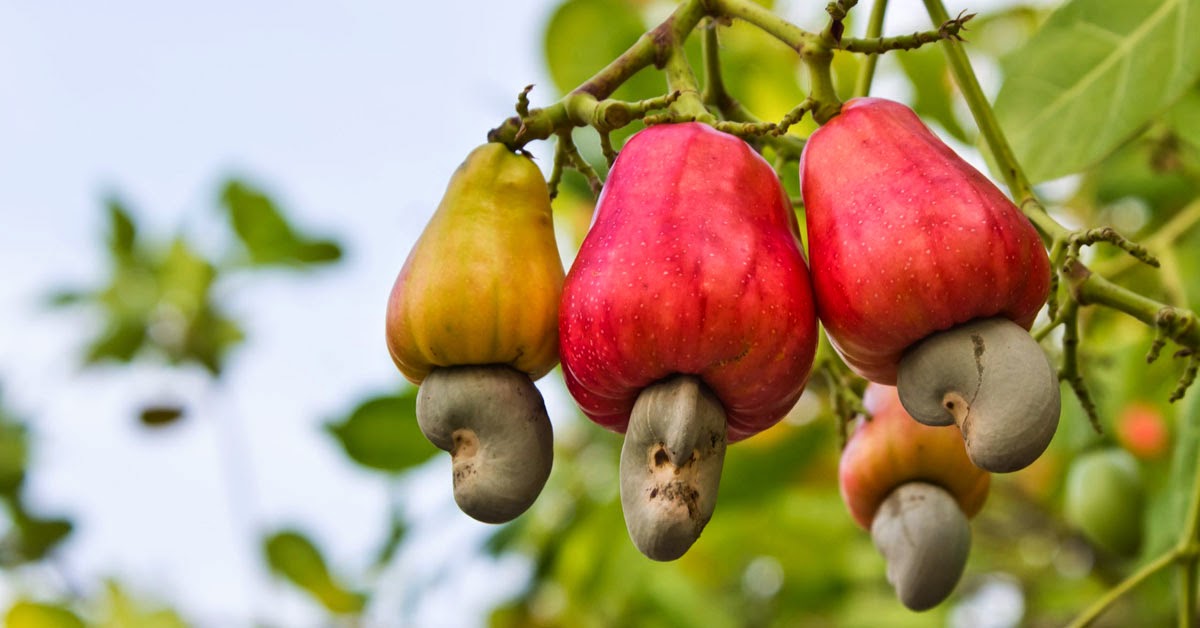- Nigeria Can Earn $505m From Processed Cashew
Nigeria stands to earn $505m from exports of processed cashew nuts in the next seven years if attention is paid to scaling up production and value addition to the crop.
This is contained in a study of the Nigerian cashew industry conducted by the Cashew Processors and Packagers Association of Nigeria.
Nigeria currently exports only Raw Cashew Nuts, and according to the Chief Executive Officer of Nigerian Export Promotion Council, Mr. SegunAwolowo, the country produced 160,000 metric tonnes of the RCN in 2015 worth $253m.
He said that processing even 50 per cent of that volume of the RCN for exports would create 9,000 additional jobs.
The study was presented by the Managing Director, Valency Cashew Processing Limited, Mr. Basba-NandBalodi, to the team from NEPC who paid a visit to his processing plant recently.
It indicated that Nigeria had the potential to increase the production of the RCN from the current 160,000MT to over 500,000MT within the next seven years and to 1000, 000MT in the next 12 years.
Balodi said that only about 15 per cent of the RCN was being processed in Nigeria, generating about 3,000 direct and 12,000 indirect jobs.
He said, “Within five to seven years, when production grows to 500,000MT, 167,000 direct and indirect jobs will be created and if 50 per cent of that is processed for exports, the country will generate $505m.”
He lamented challenges facing cashew processors, pointing out that they were unable to compete with their peers in other countries.
He said, “Nigerian processing industry is unable to compete with industries in India, Vietnam, Asia as well as Benin Republic and Ivory Coast in West Africa.
“Lack of electricity, poor infrastructure and inefficient incentive schemes, non-readily available single-digit interest funds for processing as well as lack of government policy support on value realisation of by-products like empty cashew shell and husks are among major challenges facing processors in Nigeria.
“In Nigeria, processors spend around $20 per MT on disposal of these by-products whereas in India and Vietnam, by-products generate about $150 per MT to the processors.”
Balodi suggested that for the sector to be developed, the government should set up a cashew council under NEPC or the Ministry of Agriculture and provide a window period up for processors to buy the RCN for local processing to coincide with the time adopted by neighbouring Benin Republic.
He advised the government to impose an export levy of $150 per MT on the RCN, starting from January 2018.
He said, “With the RCN export of about 160,000MT, NEPC can expect to collect about $22.5m and with growing population, this revenue can grow every year. This levy already applies to the Benin Republic and Cote D’ivore. “
He urged the government to promote the consumption of cashew and create awareness of its health benefits.
Awolowo assured the processors who were also present during his visit to the cashew processing plant that government was aware of their challenges and was taking steps to address them.
He said that cashew was one of the 13 national strategic export products chosen by the government under category B of the Zero Oil Plan, which was highlighted in the recently launched Economic Recovery and Growth Plan of the government.
He pledged that the council would continue to support the operators through capacity building projects such as the NEPC/United States Agency for International Development/NEXTT project to improve competitiveness in the value chain.

 Billionaire Watch3 weeks ago
Billionaire Watch3 weeks ago
 Startups4 weeks ago
Startups4 weeks ago
 News4 weeks ago
News4 weeks ago
 News4 weeks ago
News4 weeks ago
 Bitcoin4 weeks ago
Bitcoin4 weeks ago
 Naira4 weeks ago
Naira4 weeks ago
 Forex3 weeks ago
Forex3 weeks ago
 Treasury Bills4 weeks ago
Treasury Bills4 weeks ago

























